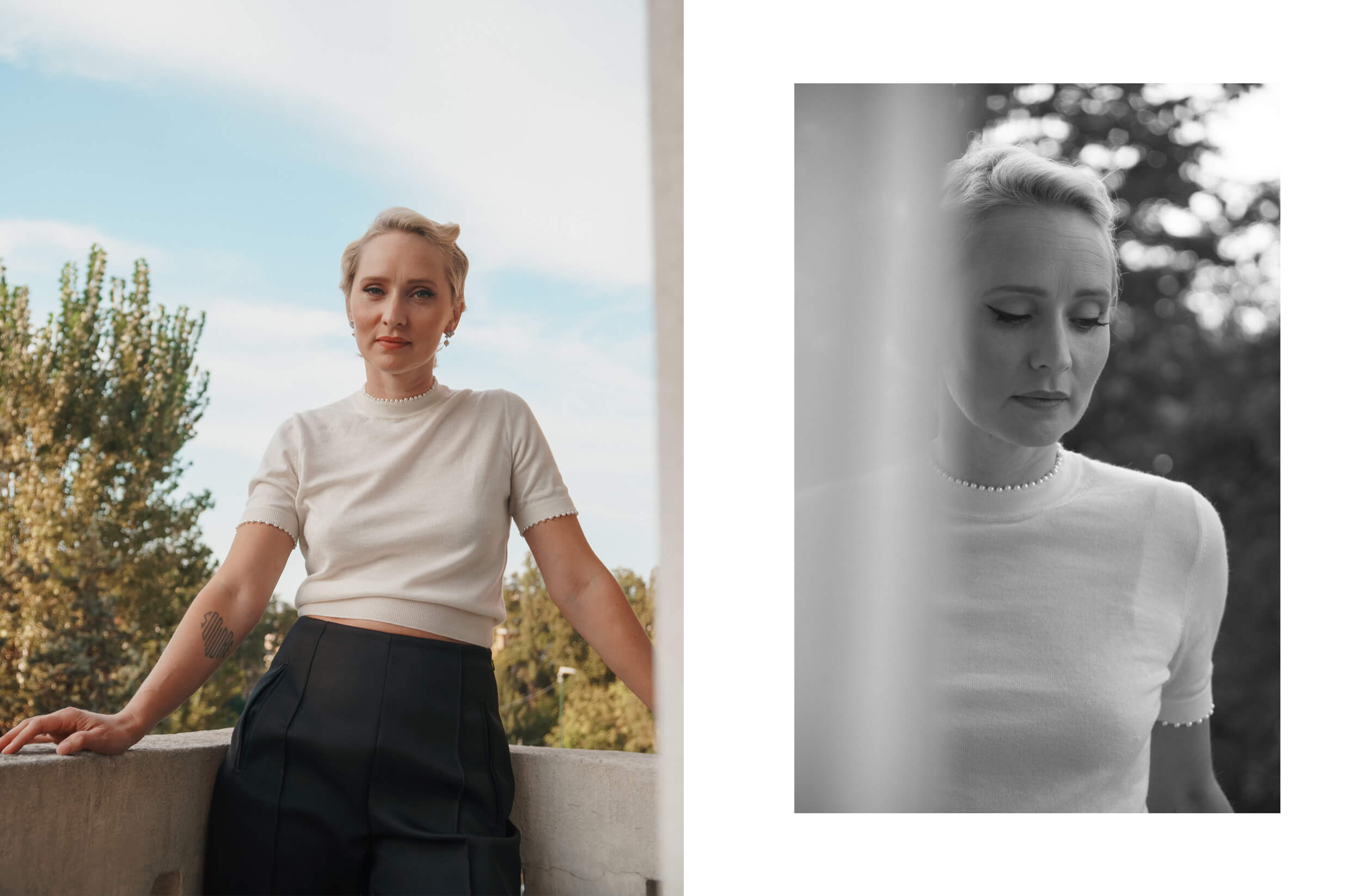“The World to Come” is one of those films you keep going back to think about and every time a new aspect, a new feeling come through as if it was an ever-going process of discovery.
A classic love story says director Mona Fastvold in our interview, although it hasn’t been told in this way very often.
Mona guides us into the making process of this film, from embracing its script to working on a wonderfully crafted dance with actresses Katherine Waterston and Vanessa Kirby on their characters’ interactions. Through her cinematic language, Mona managed to bring to the screen a film where repressing emotions becomes the most powerful emotion, an 1800s story that feels more than contemporary, a nostalgic feeling for what it could have been (and briefly was) that will only live in our imagination.
What pushed you to create this film? Was there something in the script that particularly moved you?
When I read the script, I was so immediately struck by how it is a story that of course has happened so many times before – we’re not inventing the wheel here – this is a classic love story in many ways, it just hasn’t been told very often. The way these two women interact, how they are slowly circling one another, playing this game of “What can you say? What can you not say?” and how beautiful the language is, as well, immediately got to me and this is a story that I knew how to tell and that I felt deeply connected to, that was personal. I felt right away that I had a visual language for it. It was exciting.
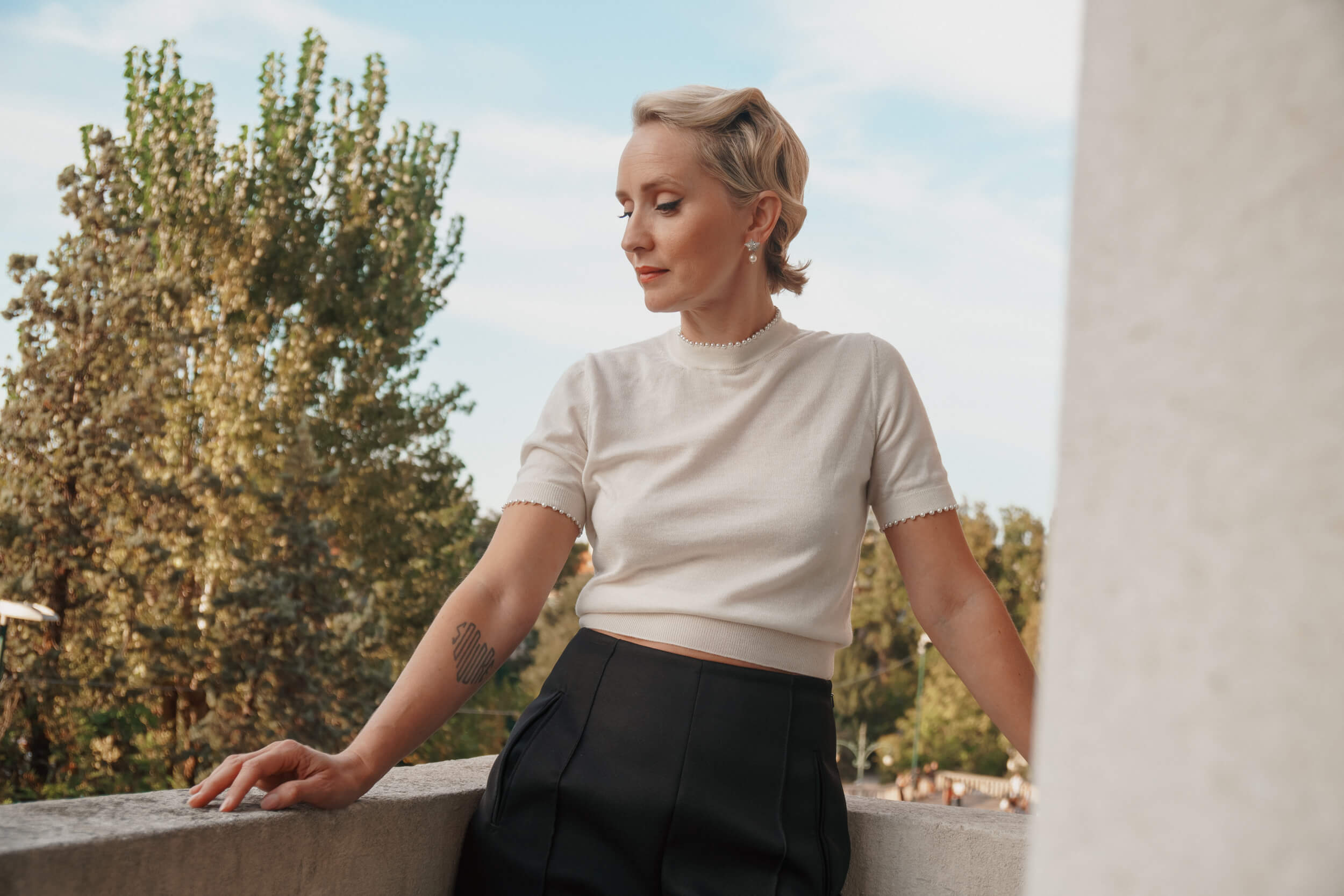
“I felt right away that I had a visual language for it.”
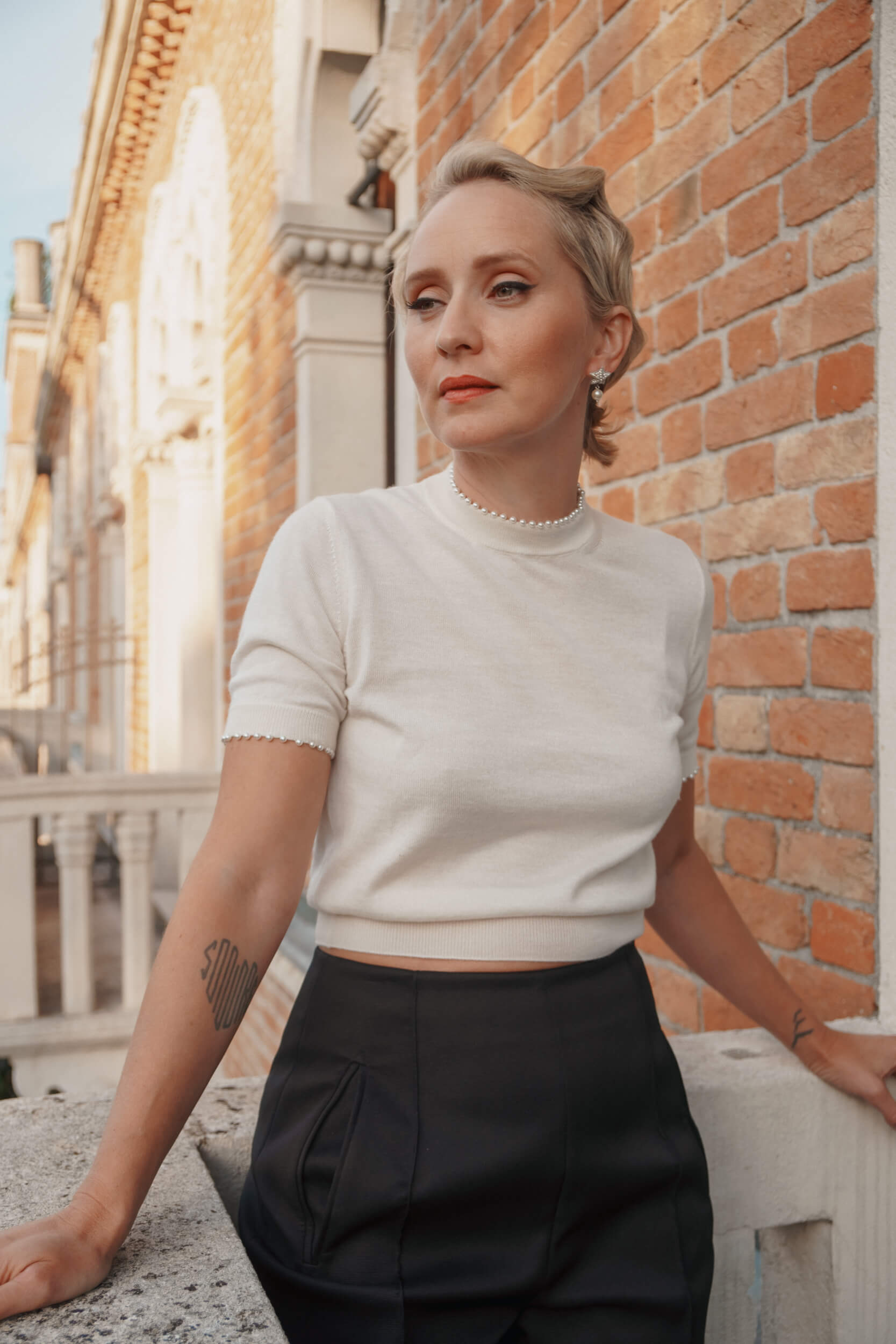
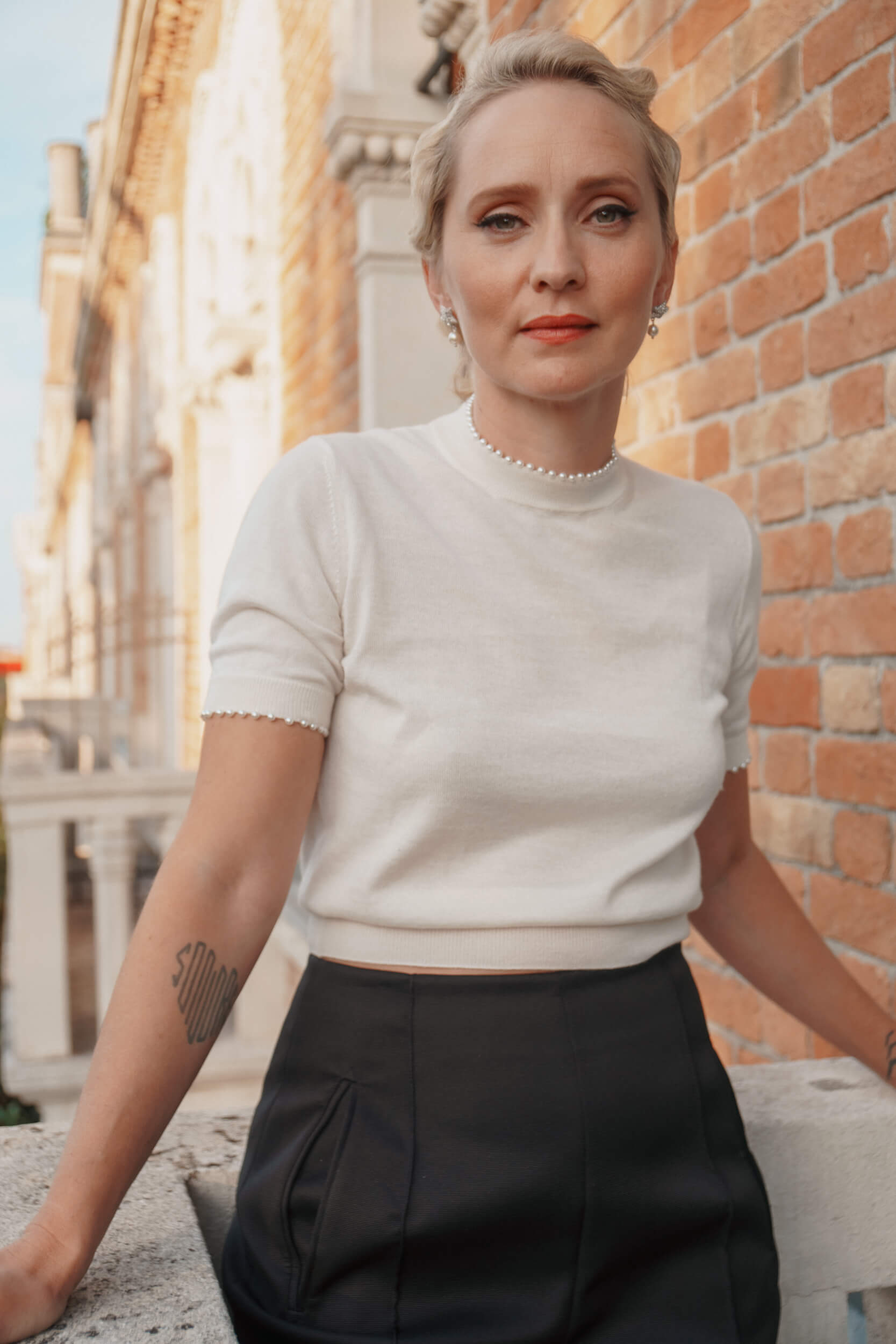
When I watched the film, I almost felt like there was a sort of dance between Katherine and Vanessa. How did you work with them to build this chemistry and this choreography?
It’s interesting that you talk about dance and choreography, because my background is from movement and dance also, and I love to integrate that into my cinematic language. There are a lot of long-sequence takes and tracking shots, we were working on blocking, because the chemistry between the two of them was just there, immediately, from the first time they met, it was getting on so beautifully. They’re both very intelligent and really funny, so they were playing off each other right away. That energy was not something they had to work on, it was there. Often to crack the code on these long dialogue scenes was finding the right blocking and the right movement, and how they could sort of circle each other within the space and how a gesture could be so significant, as the taking of her foot.
Those little movements and gestures are so meaningful when you’re in that part of a relationship, or in the state of falling in love: the feeling and warmth of somebody right next to you, not even touching, and how your body pulsates from just that, and we tried to capture some of those things in the way we placed our cameras.
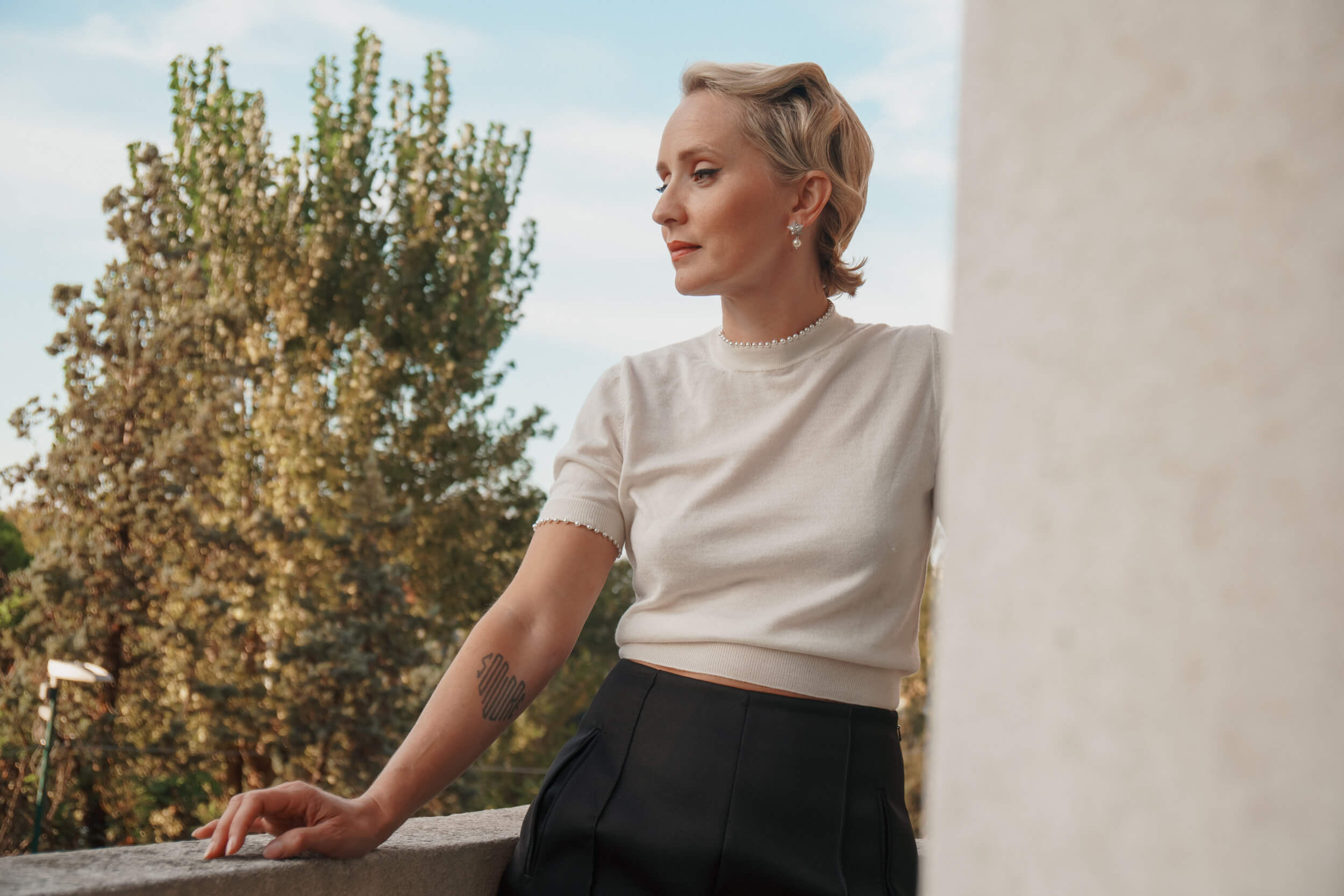
Another thing about movement and chemistry that was an exciting part of the shoot for me was the image of Katherine where she lays back after the first kiss, I love that scene in particular, I feel like we cracked the code on that early on, I think we used the first or the second take of it. That kiss is so clumsy, so endearingly awkward, which I just love, and how Katherine bends down to find Vanessa’s eyes afterward, that was also really special, and so truthful, because a first kiss is not perfect, we all know that, it’s usually clumsy, but it can be amazing at the same time, it’s trying to find someone and hopefully you do. We wanted to capture that little bit of awkwardness. After that kiss scene, I was saying to Katherine, “I want you to try and do a movement that expresses to you complete awkwardness, just joy and awkwardness. What is that, what is astonishment and joy to you?” I said, “I’m going to be here with the camera and I want you to try and move from here to here and find a way of just expressing this with your body.” All of a sudden, she just sat down and fell back into that pose and I thought, “This is it!”
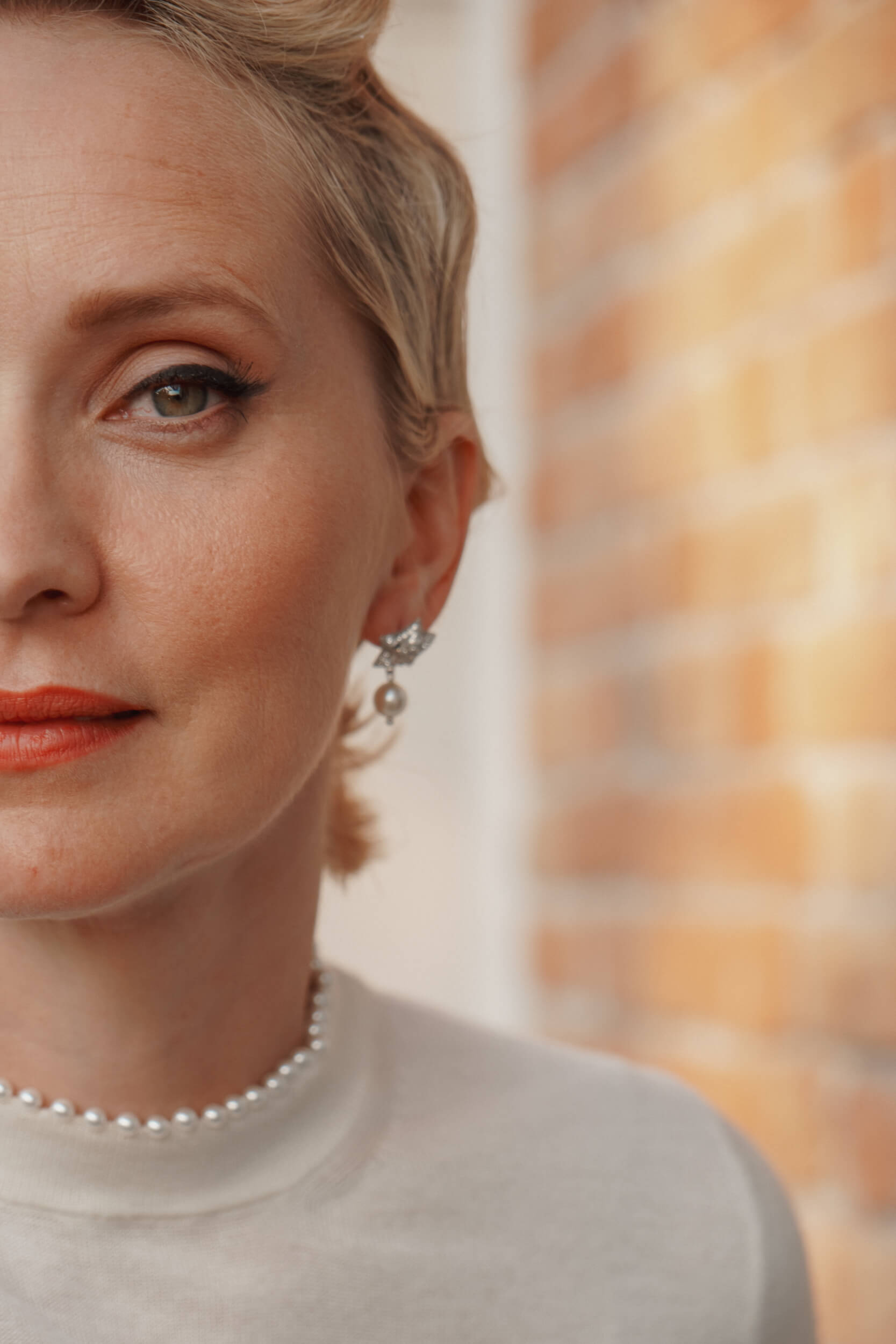
“…my background is from movement and dance also, and I love to integrate that into my cinematic language.”
Some scenes feel like a painting. If you could photograph a moment in the movie, what would it be?
This image I was talking about, (that I wanted to release first from the film), is daring to me. I think that André Chemetoff, my cinematographer, is such a master with lights, and I had an extraordinary production designer I worked so closely with, as well, and our inspiration and references for the film were mostly paintings. Also down to shooting in 16mm and having all that texture, because I wanted to create that painterly feeling of the era, more so than being reminiscent of other films about the era, so that it would be my representation of that period and not just paying homage to other movies which also portray the same era.
I thought of still lives and paintings, such as when they’re plucking the chickens, I was obsessing over those sorts of little things and these greedy farm life’s details, that are still lit in this romantic way.
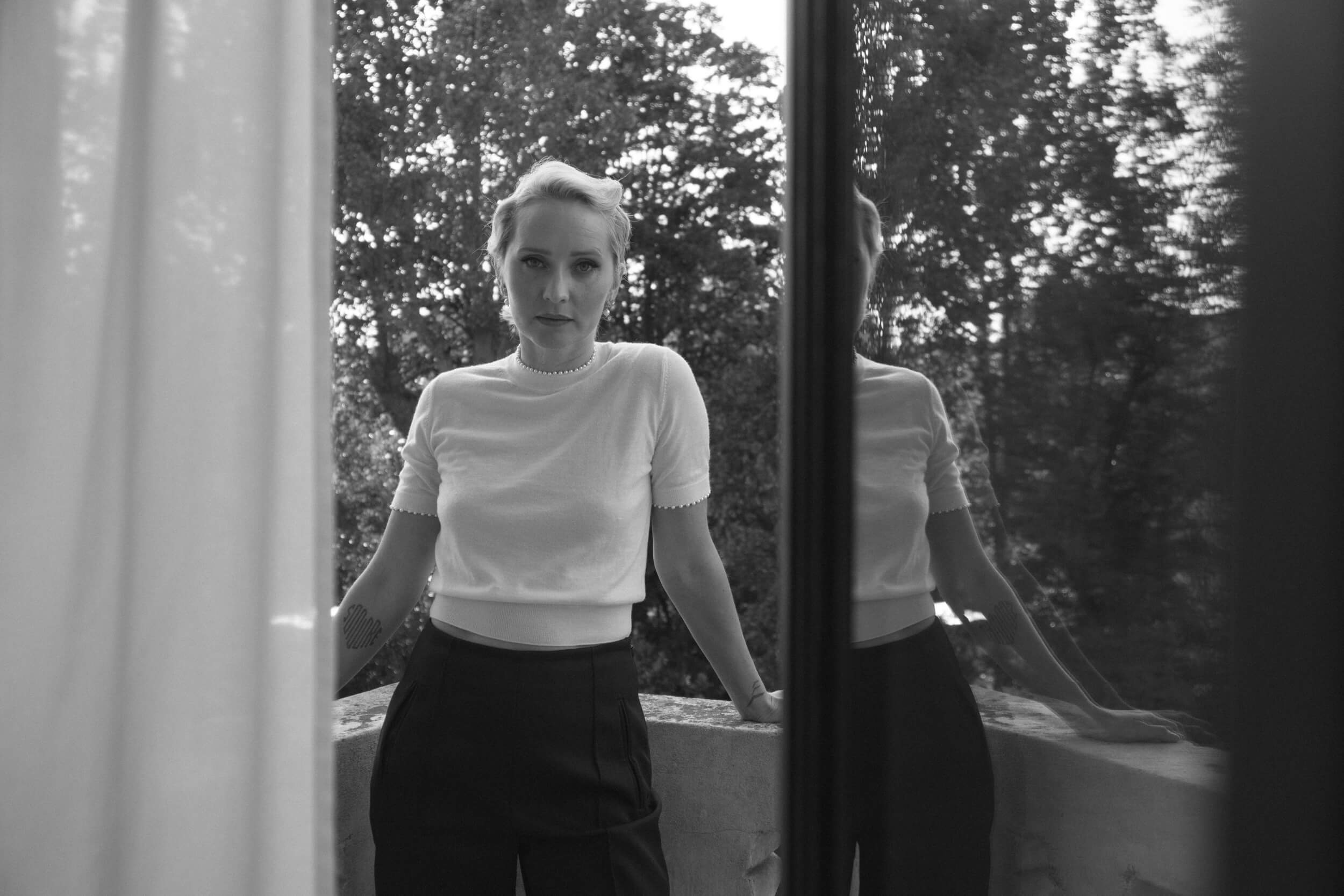
When you have such a powerful script as a director, how do you embrace it to make it your own?
I was lucky enough to work with some really lovely writers who were telling a gay love story between two women and they are two older men, and I think they did a beautiful job of telling this, but they also said, “Okay, now, here, move into this and make it your own.” They gave me so much freedom and they were so excited to hear my propositions and to collaborate further on developing the story and structure. They did a beautiful pass list of my thoughts when revealing that it might take a crack at something and then they would elevate it, so it was a very collaborative process. For example, I said, “I think we need to have a love scene in this movie and I have a very specific idea for where I want to place it and how I want to do it,” but I said, “don’t write that, I’m just going to do it” [laugh] That was something we wanted to bring into the film as well.
Also talking about childbirth and motherhood was something I really wanted to bring into the script: Can you imagine knowing that you were just going to have to go through all of that by yourself? I wanted to add those conversation, little things like that that I just wanted to pull into it, that’s my only experience as a mother and as a woman that I wanted to bring into it, and also, aesthetically, I wanted to take all these amazing texts and find a place to make them into a movie and make it cinematic.
I usually start off doing a very detailed visual book, with drawings, paintings and photographs that I start building on as I go through (along with the script). It becomes the bible that I use with all my creative collaborators as we keep working.
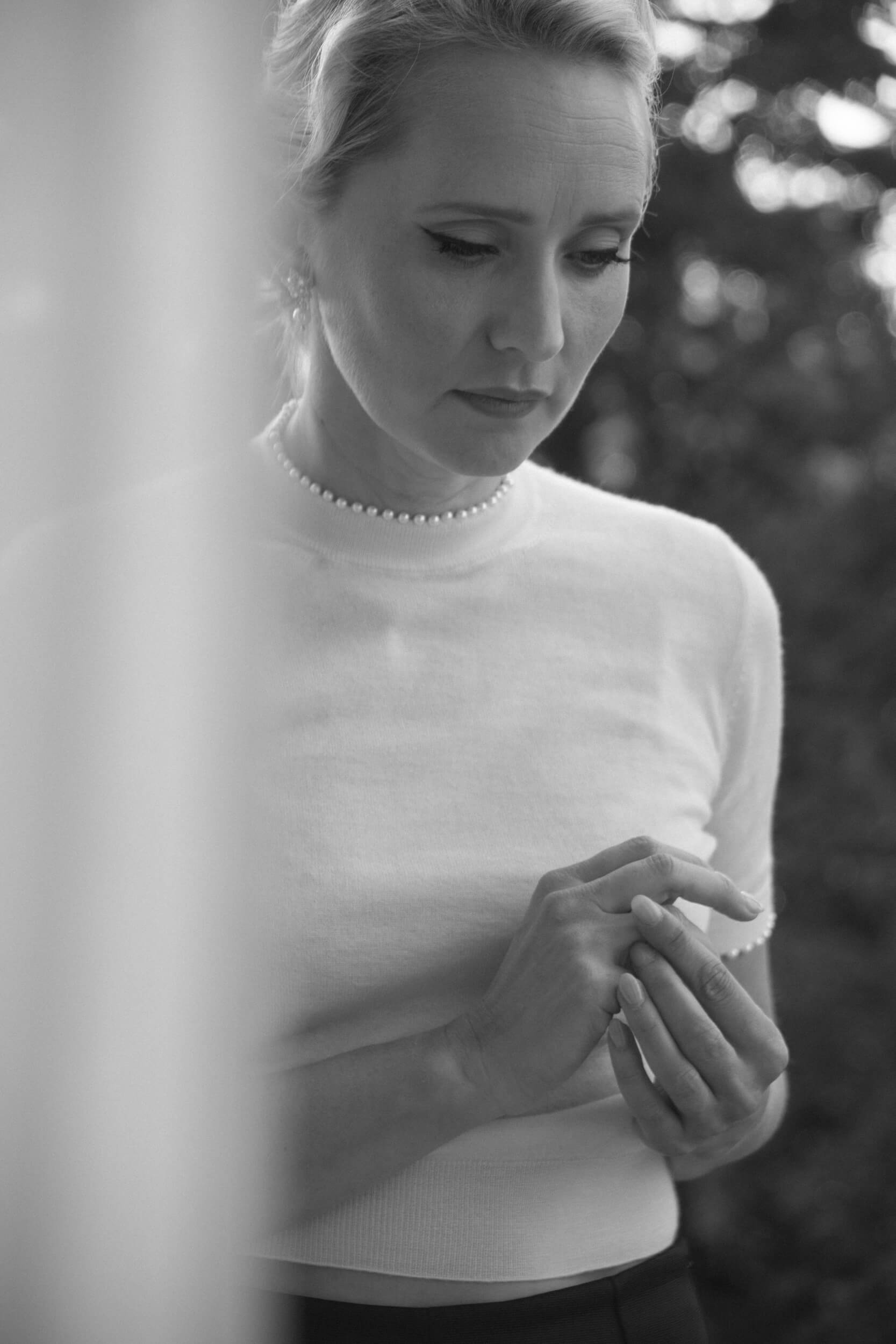
“Also talking about childbirth and motherhood was something I really wanted to bring into the script.”
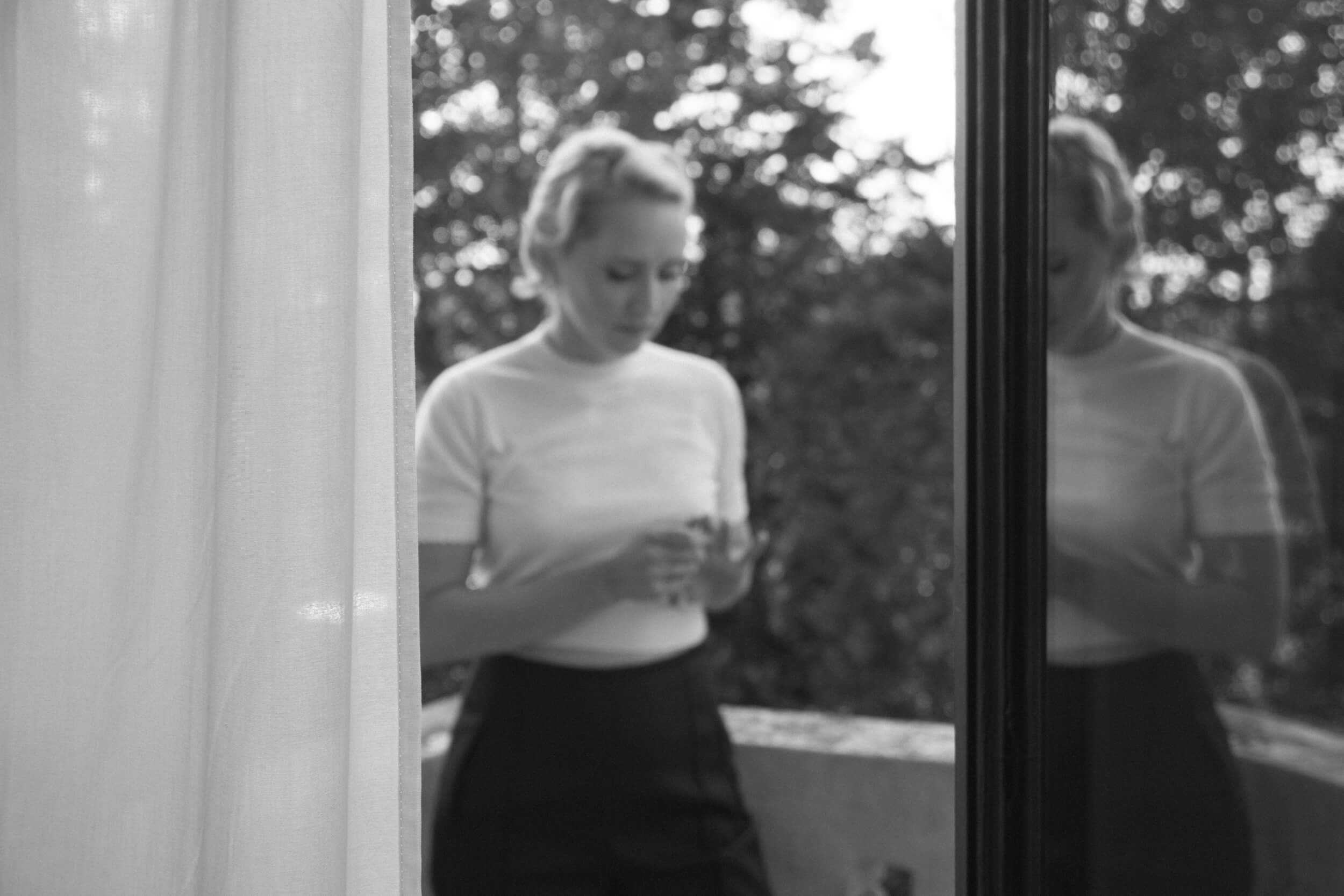
“I usually start off doing a very detailed visual book, with drawings, paintings and photographs…”
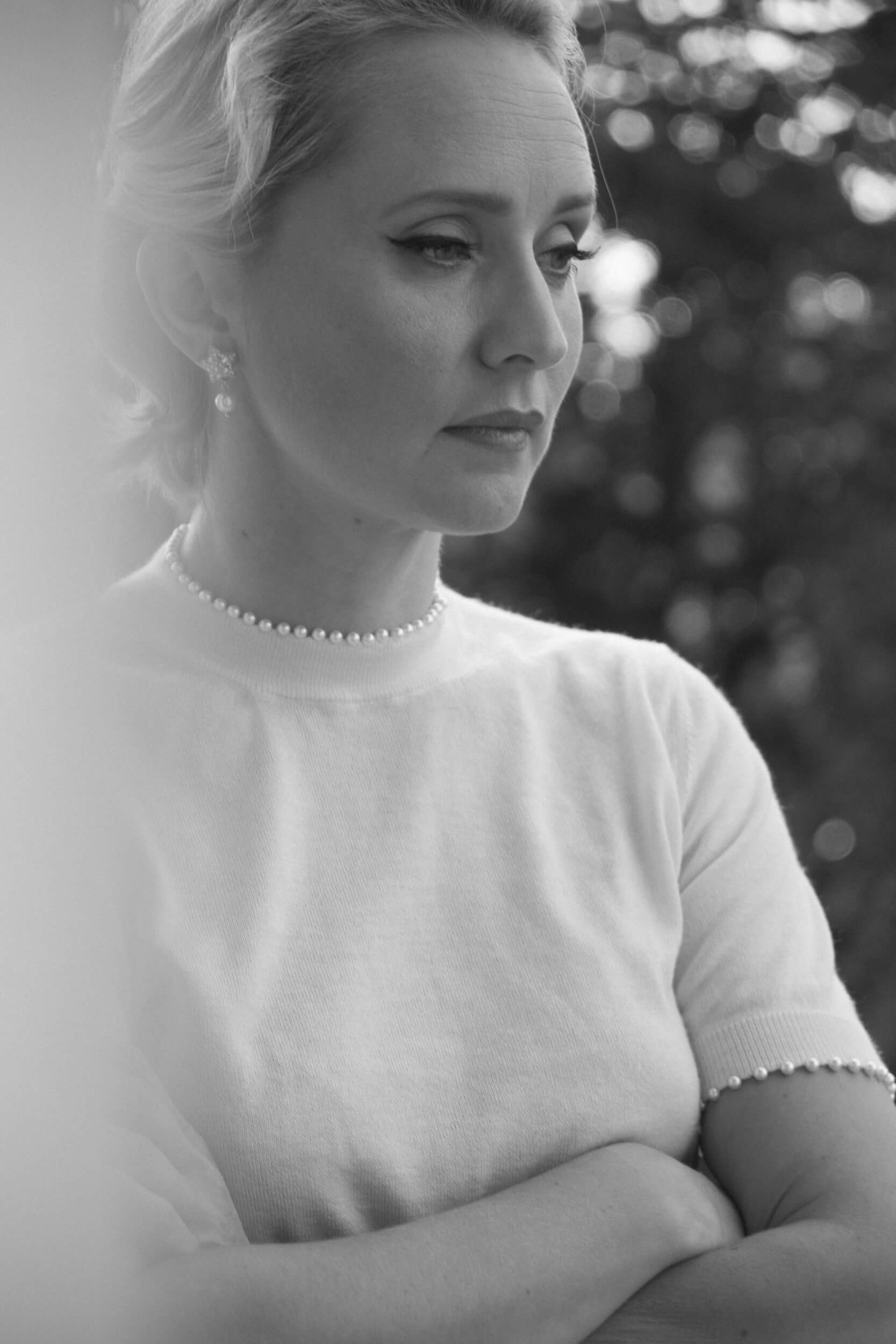
The weather seems to be a character itself. I know that you filmed it seasonally: was it a hard thing to do?
Yes, it’s so hard scheduling split shoots when you have a small budget. Small is relative, but this film did not have a lot of room to do all the things that we wanted to do, so to shoot it in two parts was so challenging. But we felt it was really important that the story had the scope of the seasons and of time, so somehow my very hard-working producers and I found a path to doing so. The exciting thing for me as a filmmaker was that I got to edit in between, so we shot summer and fall first, then I edited for a couple of months and then we went back to shoot the winter and spring. It was an interesting way of getting to truly feel what I wanted to add. I didn’t reshoot anything, I just added some very specific things to it.
Through the film, we hear many times a character referring to something they were tought when they were kids. And then both Tallie and Abigail talk about prison. How much do you think we are still “imprisoned” by the ways we were raised?
I think, particularly for Abigail and Tallie, the only point of reference they have are their family because they were raised in such a remote place that their world is very small, thus they’re always saying, “My mother used to say, my sister, my brother…” their world is that. Abigail has read some books and plays, has had a peek into the other worlds but the one they’re living in is a prison and Abigail is entertaining the idea that maybe this could be a joyful prison: “Here we too can sing like birds in the cage,” that’s what she says and that line always gives me chills, the way she thinks, “Can we just be content in this prison, is that a prison that could work to her benefit?” It’s so sad, because no, it isn’t, of course, you deserve so much more, you deserve to break out of that, but for them, that is not possible considering the period they were living in. Yet, I think that a lot of people can still identify with that, which is also very heartbreaking.
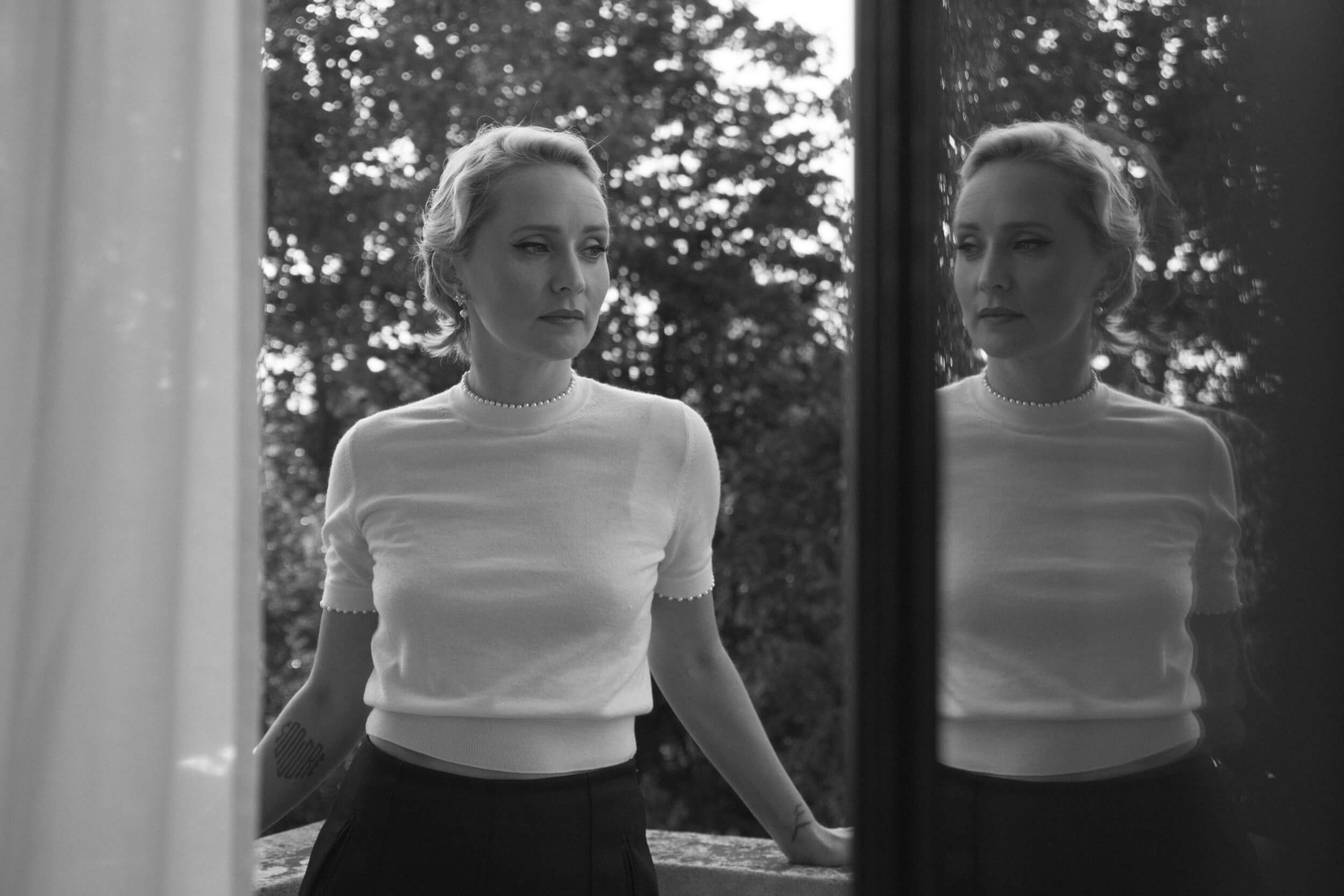
The film talks about repressing emotions, but we can still feel a lot of emotions. And that’s great. Was it difficult to represent this aspect?
No, I don’t think so. I believe it’s very much in my nature to lean towards sober performances, because I am Scandinavian, so it’s part of our culture, I’m drawn to that sort of process of going for a performance and for a choice that, if you succeed, makes the audience lean in. It’s not attacking you, it’s more you saying, “What’s happening here? I see something underneath,” and I talked a lot with Katherine and Vanessa about this, ”what is the subtext here?”. Sometimes I would take each one to the side and say, “This is what you’re going at. I want you to try and achieve this and that” and then they wouldn’t know what the other was going to do and that was part of the beauty of it, that they were constantly guessing, “Are you understanding what I’m hinting at? Am I being understood or am I not being understood? Am I saying something dangerous? Is this too dangerous? Are you reading my clues or not?” This constant uncertainty which I think is something we can identify with now as well when you’re taking that step of not knowing if someone is willing to take that step with you, I think that’s terrifying. So, you’re scared of insulting someone or making someone feel uncomfortable, and I think back then in particular it was dangerous, too, saying the wrong thing.
Do you think we still have to find solace in our imagination?
Yes, I think so, the only escape a person has is their imagination. That is for me the sentiment that ends the movie, and that is heartbreaking, but it’s true. I think in the time we are living right now a lot of us will have to resort to their imagination, if we have to go back in isolation again, if we have to find new ways of working and communicating, and fall in love on Zoom and imagine what it is to touch someone. It’s definitely a time where imagination is a powerful thing.
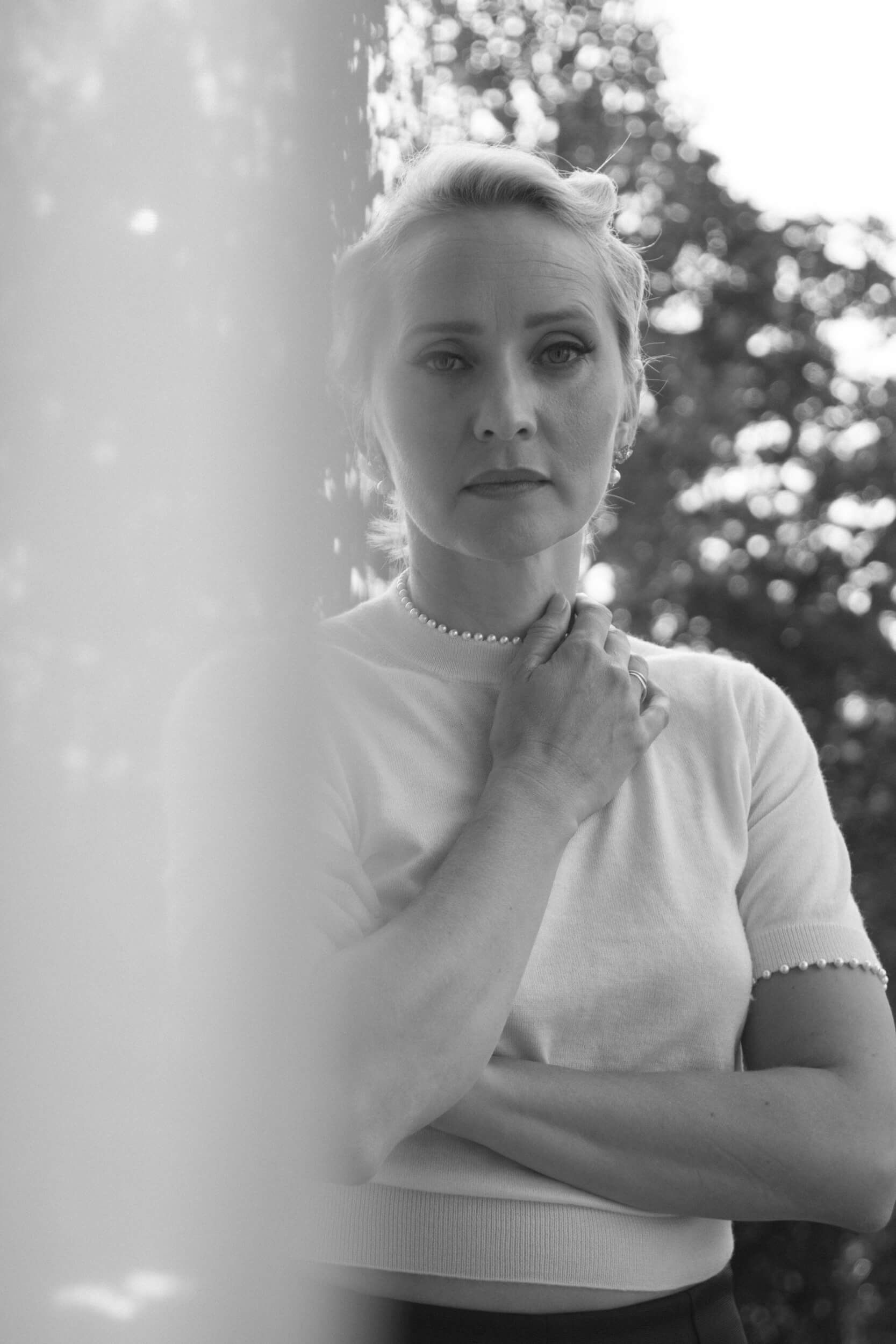
“…the only escape a person has is their imagination. That is for me the sentiment that ends the movie, and that is heartbreaking, but it’s true.”
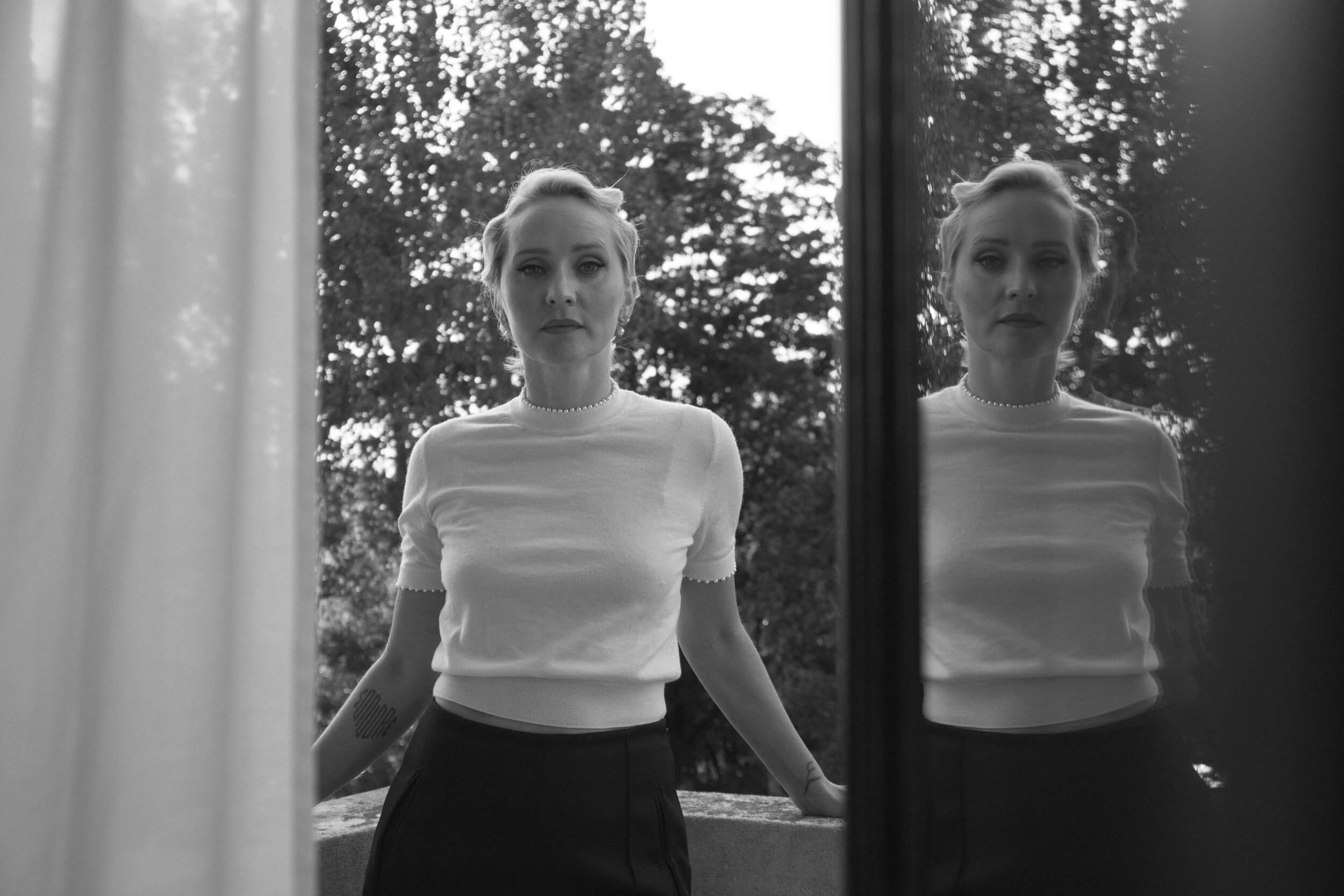
What is contentment to you?
That’s a hard one. I know what satisfaction is, but I’m not content very often. I experience a lot of deep satisfaction when I have fulfilled with my work, and those beautiful moments on set, for example when the performance is exactly where you wanted it to be, and all of a sudden there is a gust of wind and the light is right, Katherine blushes and there’s this magical moment and you feel like a conductor, and not like a mechanic, that’s not contentment, because I’m always nervous and anxious, but it’s very satisfying.
What was the feeling when you saw it for the first time?
Seeing the first assembly of a movie is a very painful experience because you’re at the very beginning of an editing process, you’ve seen all the work you did: my editor is fantastic and we’re very close and have worked together and known each other for years and years, and he’s got such an elegant sensibility, but still there is like a million things where I was like, “I need to fix this right now because it was supposed to be there, not there, and we need to do this and so on,” basically the first time seeing the movie, I want to edit the entire thing immediately, so that is always a panic attack.
What were the main challenges of bringing to the screen this film made of so many layers?
Every day was a big challenge because we were battling rain, mud and snow. It was a very challenging shoot, sometimes we had to carry the equipment up the hill because we couldn’t bring the cars up and the horses… It’s really hard directing horses, I had no idea how difficult it is to direct them, that was quite challenging. Half the time they were just not doing what we wanted them to do, they would get anxious, nervous, and for some reason, with these particular horses you could never call “action” because they would get anxious, so they were causing a lot of trouble. [laugh] The chickens, the cows and the sheep were better behaved, the worst were the horses, talking about a prima donna.
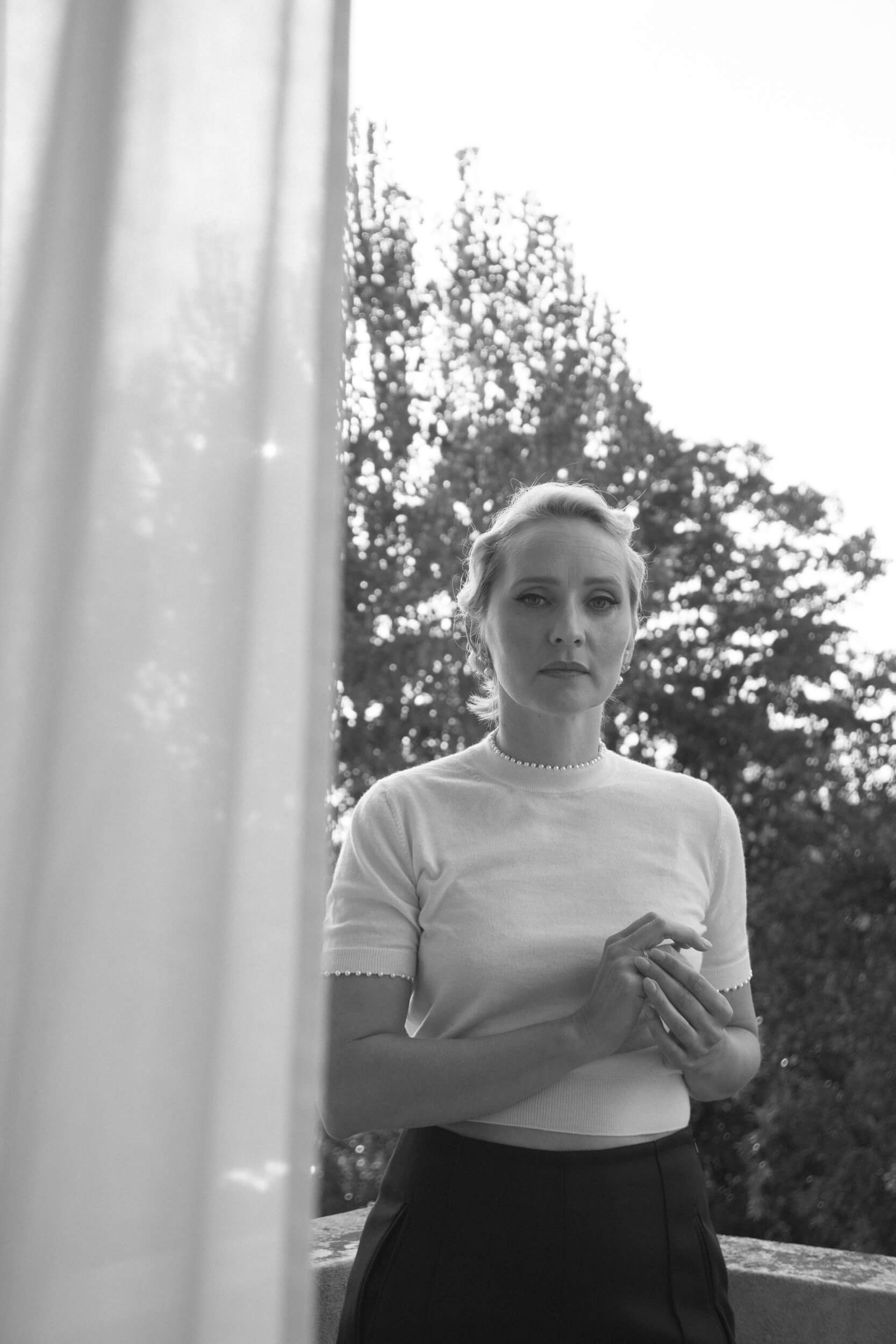
“… those beautiful moments on set […] when the performance is exactly where you wanted it to be, and all of a sudden there is a gust of wind and the light is right, Katherine blushes and there’s this magical moment and you feel like a conductor, and not like a mechanic…”
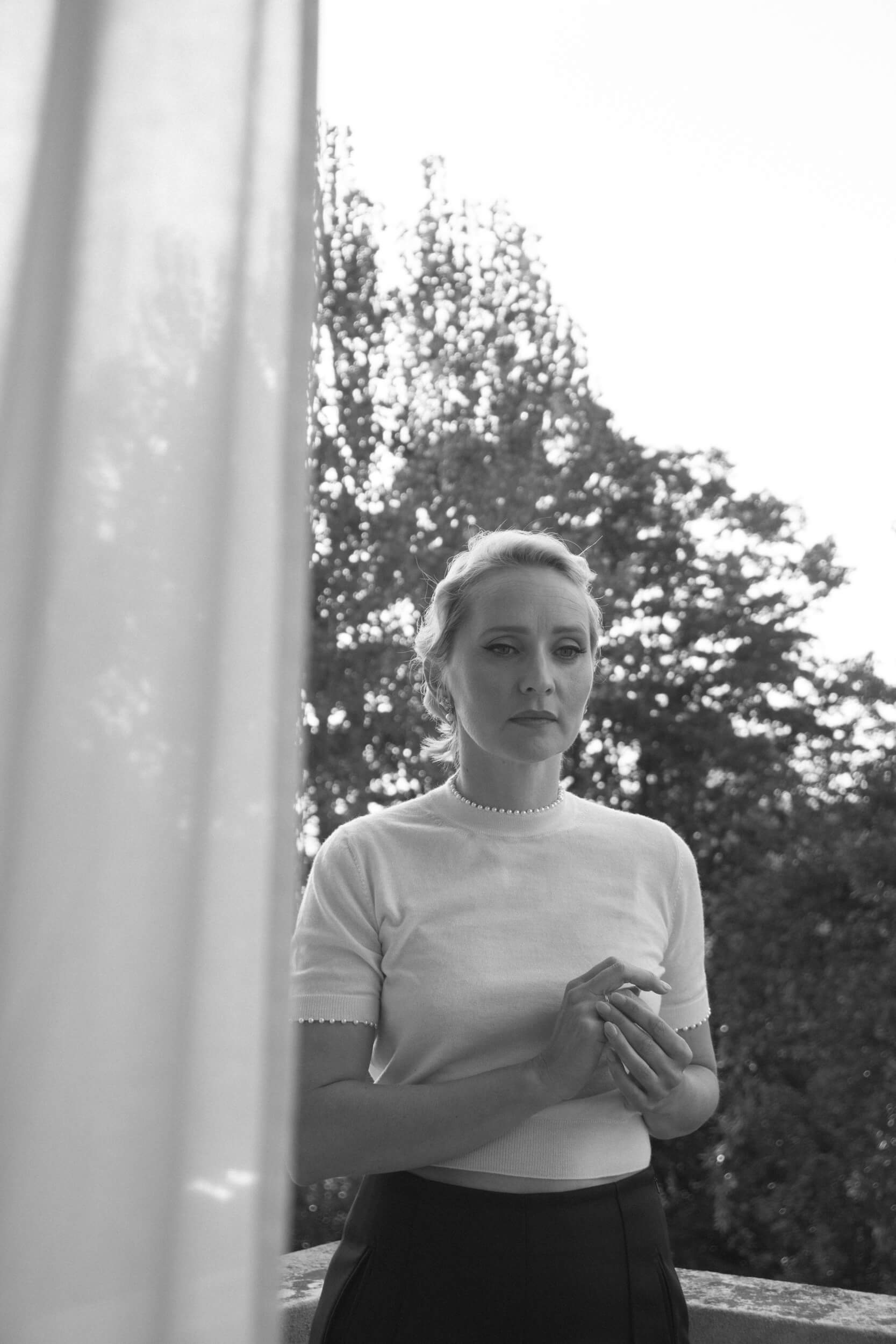
Abigail finds that writing is the only way (especially at the beginning) to express herself. Do you keep a journal, or do you find comfort in writing diaries?
I do, and it’s so nice of you to ask me that question, because everyone asks me, “Why did you want to direct this movie?” This is the first time I’ve had this thought, bizarrely, you’ve contextualized this for me: I write three pages every day no matter what, I’ve kept a journal my entire life, since the moment I learned how to read and write. I have cases of journals in my parents’ house, in the attic. It’s always been like therapy, a way of making sense of what’s happening in my life, and it’s just re-writing, so I’ve always been like, “no judgment, it’s not to be read by anyone, it’s not to keep a record of my life,” it is only just waking up in the morning and pouring out the thoughts that you have and somehow that’s always been a great comfort. If I go back and read this and that, it gives me perspective on my life and what I’m going through professionally, emotionally, privately. It’s like a gushing of my words that I do every day. Abigail’s writing is very precise, I think she’s an author in the making or at least someone who truly enjoys the written word, who is expressing herself, so it’s a different kind of writing, I’m not hoping that anyone will discover my diaries, I definitely want then burnt when I die. However, I do think that’s one of the things that connected me with the character and the story, as well, all this finding a spot to write, she has places to write all over the house. I used to always write in the morning, but now I have a child and I don’t have my mornings the way I used to, so now, anytime during the day, I’ll find some time and I’ll just scribble something somewhere.
Did this story stay with you, in a sense, also when you finished the movie? Did you keep something in your heart, in your life?
I just finished it, weeks before Venice, so it’s still fresh to me. Watching it at the premiere, I had to tell myself, “Stop thinking about the things, and stop working on the movie, because it’s done, and we’re in Venice right now, there’s nothing more I can do, this is it, just let it go and enjoy it.” I think you live with these stories for years and years when you direct a film, and it’s such a big part of your whole life. These two women have been a great inspiration to me, and right now I feel sad that I have to say goodbye to them and let them go. I enjoyed spending time with them, I loved working on them, they’re extraordinary normal women.
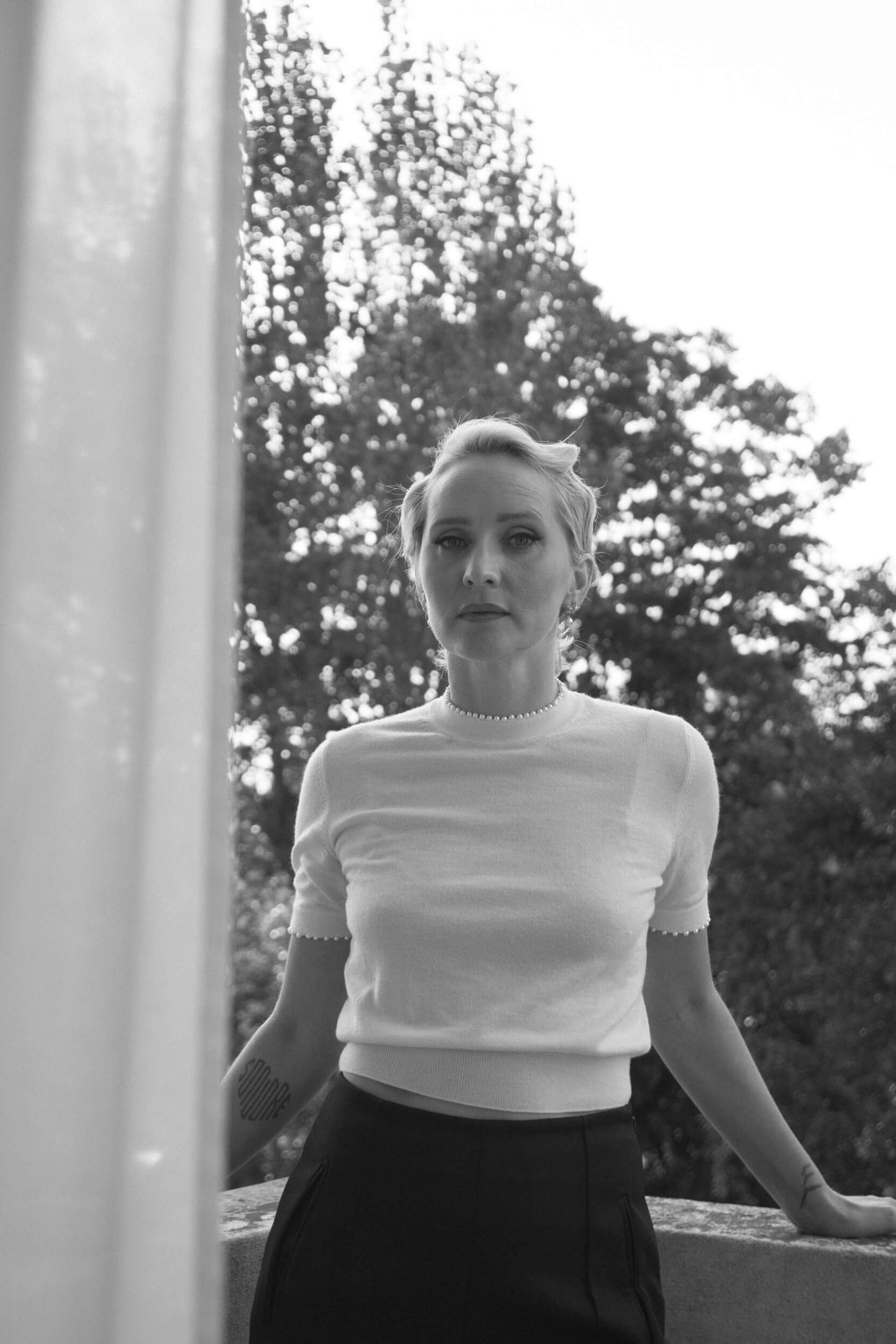
“These two women have been a great inspiration to me, and right now I feel sad that I have to say goodbye to them and let them go. I enjoyed spending time with them, I loved working on them, they’re extraordinary normal women.”
What’s the last book you read?
It was “The Overstory,” a beautiful book about trees.
Are you writing something new, or do you already have another project?
Yes, I’ve been writing a little bit during Covid lockdown and during my edit because I found the tale of an animal that I’ve been chasing. It’s still a little too early for me to talk about it, because I’m still working on it, but yeah, I’m working on something new right now and it’s really exciting. Then I wrote another movie with my partner, Brady Corbet, it’s called “The Brutalist” and he’s directing, early next year.
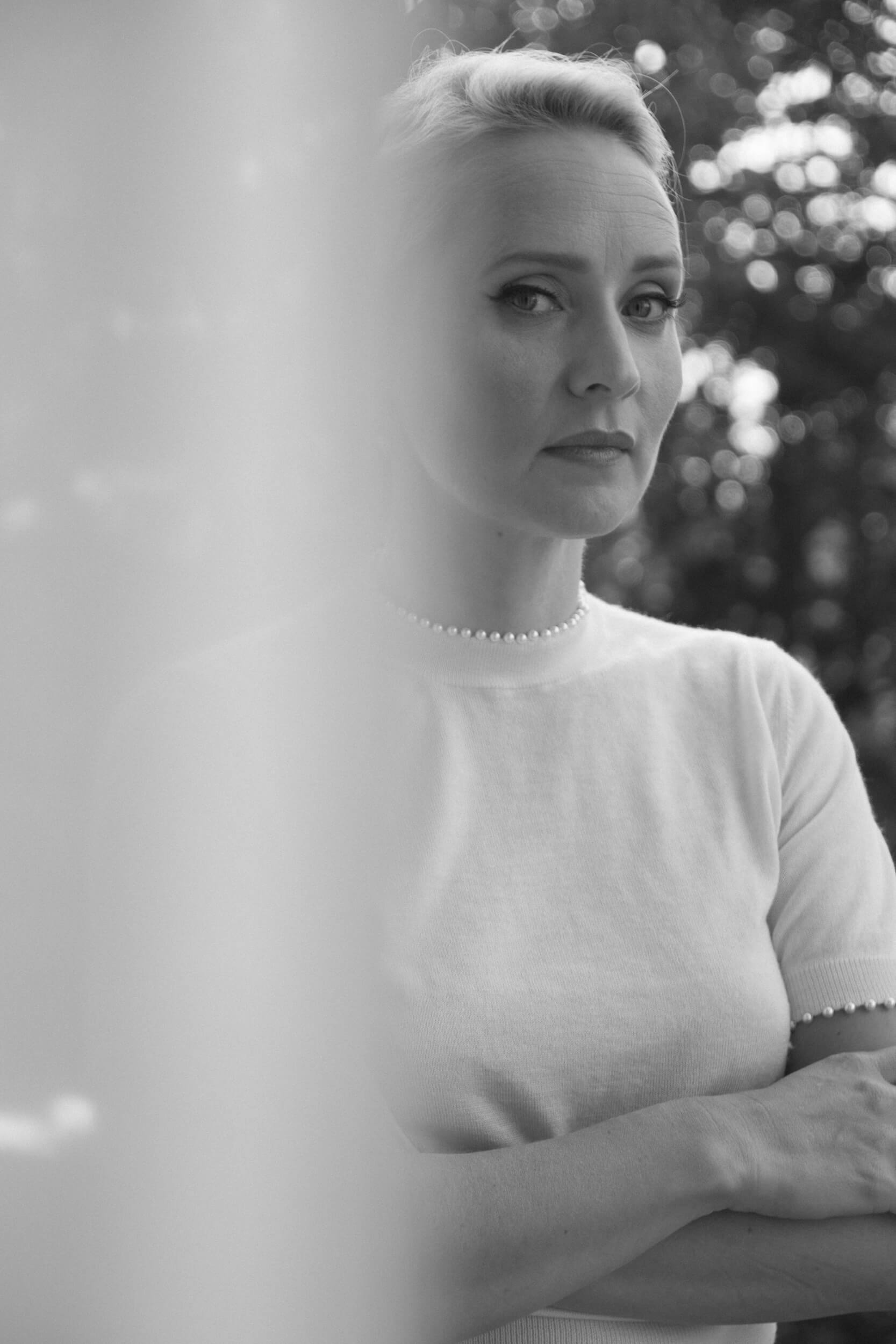

Photos by Johnny Carrano.

